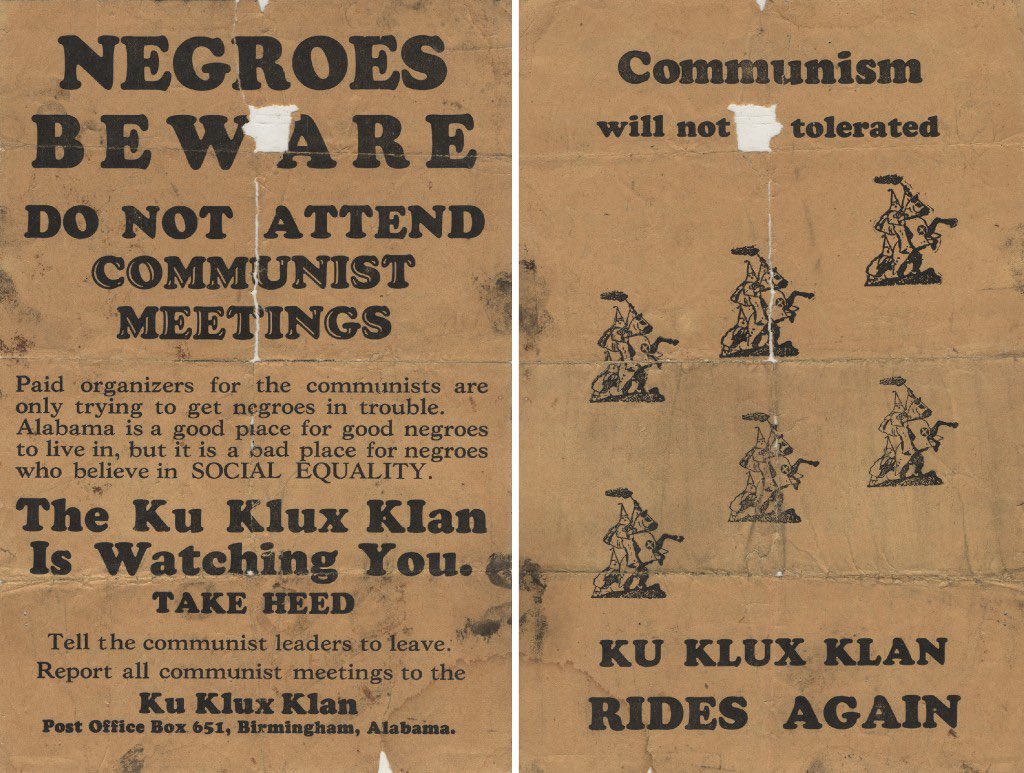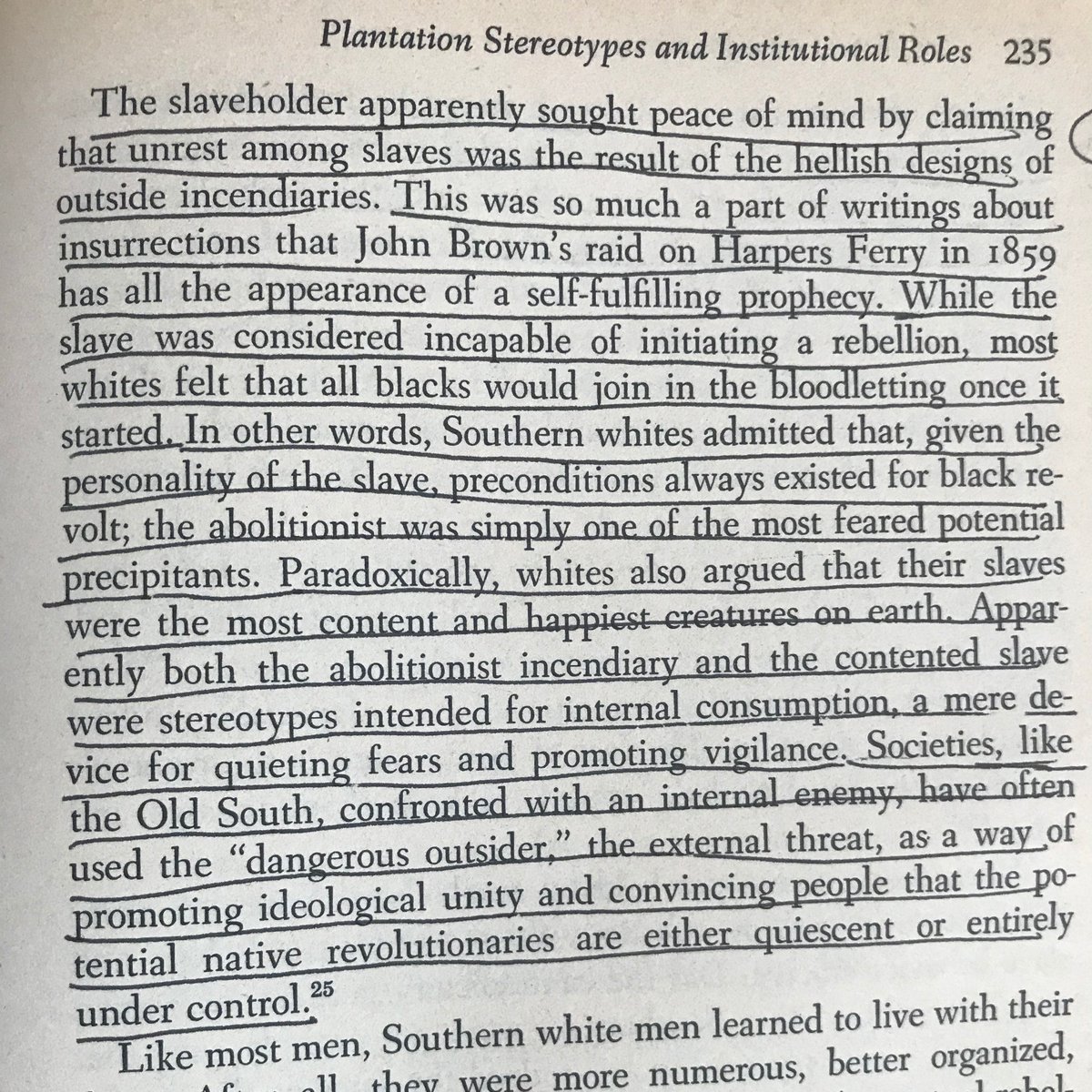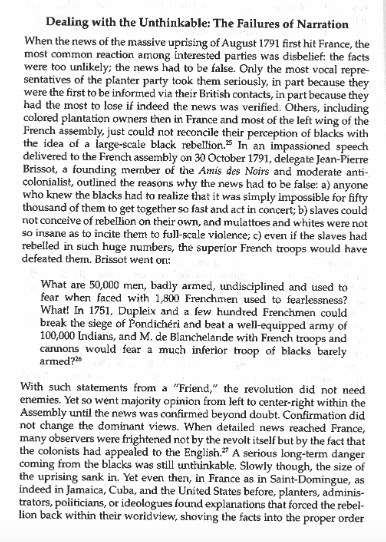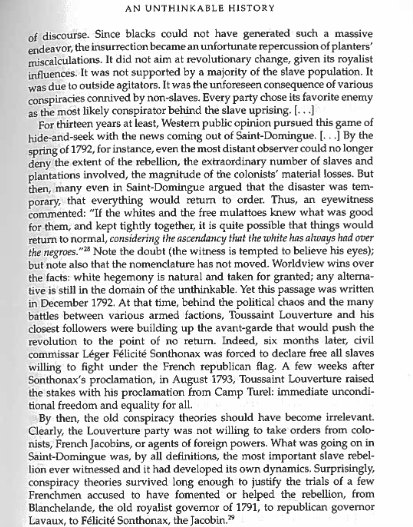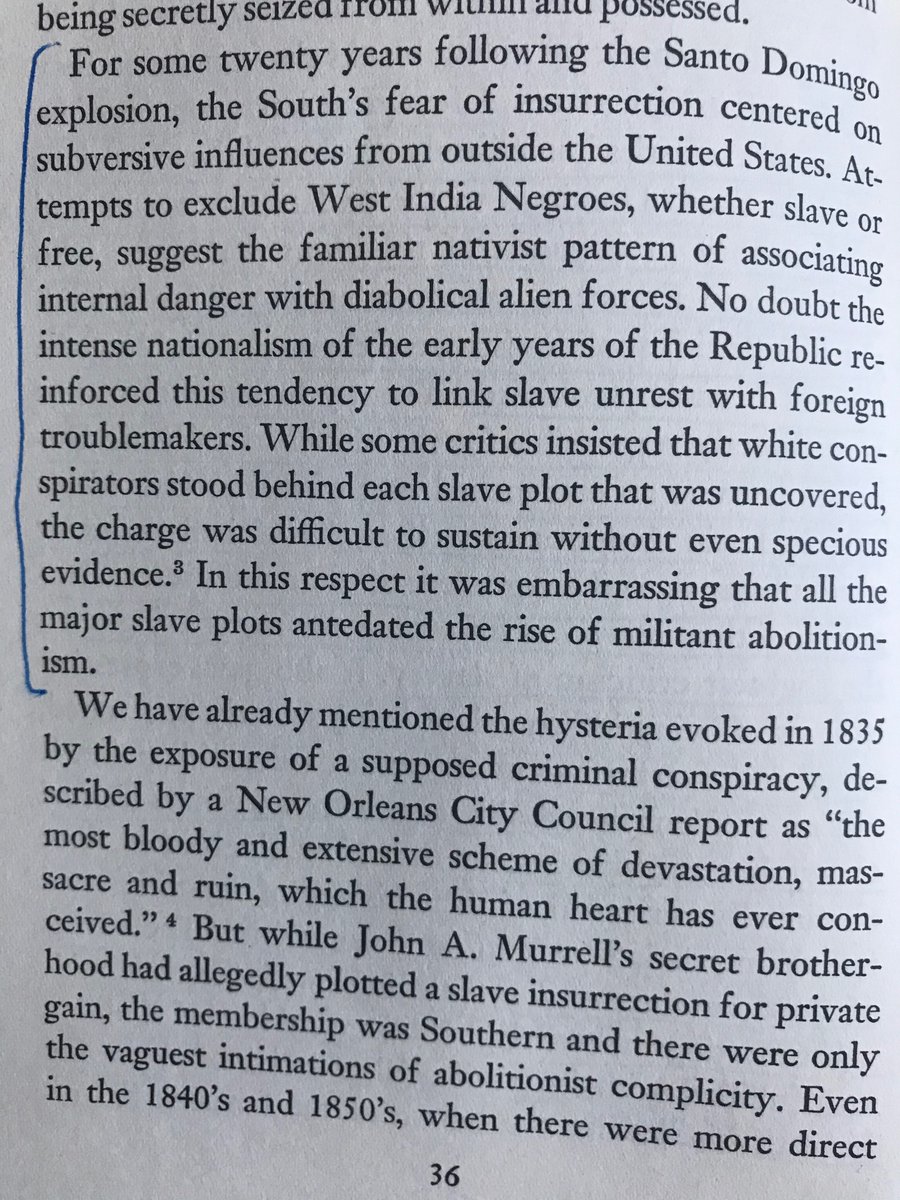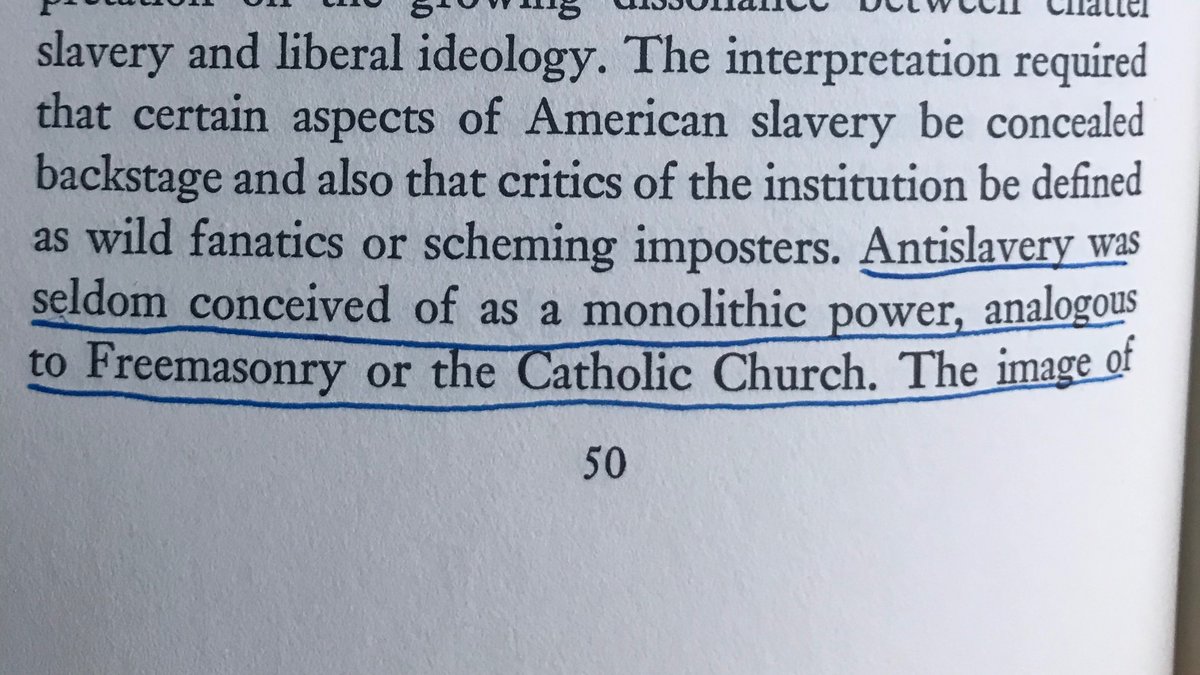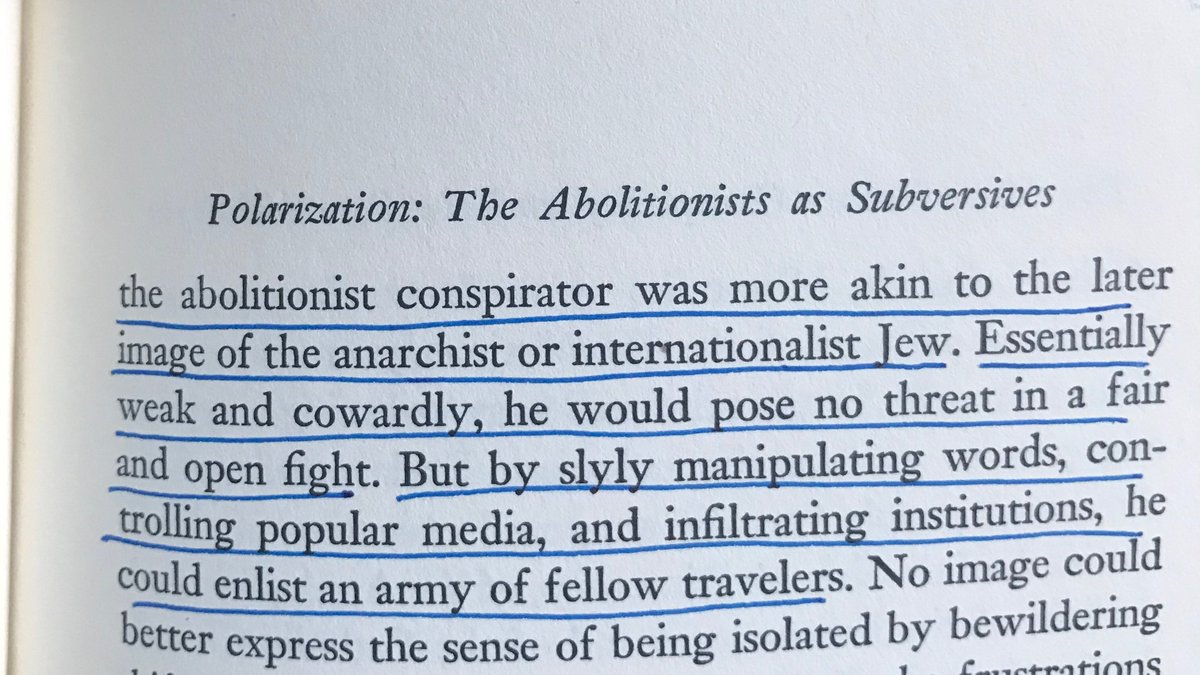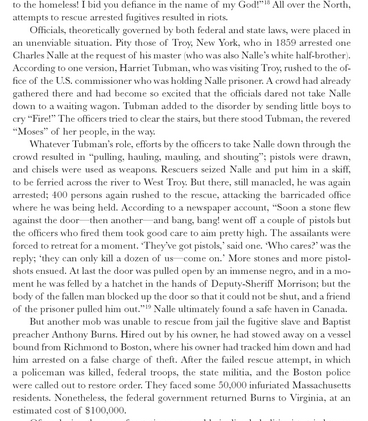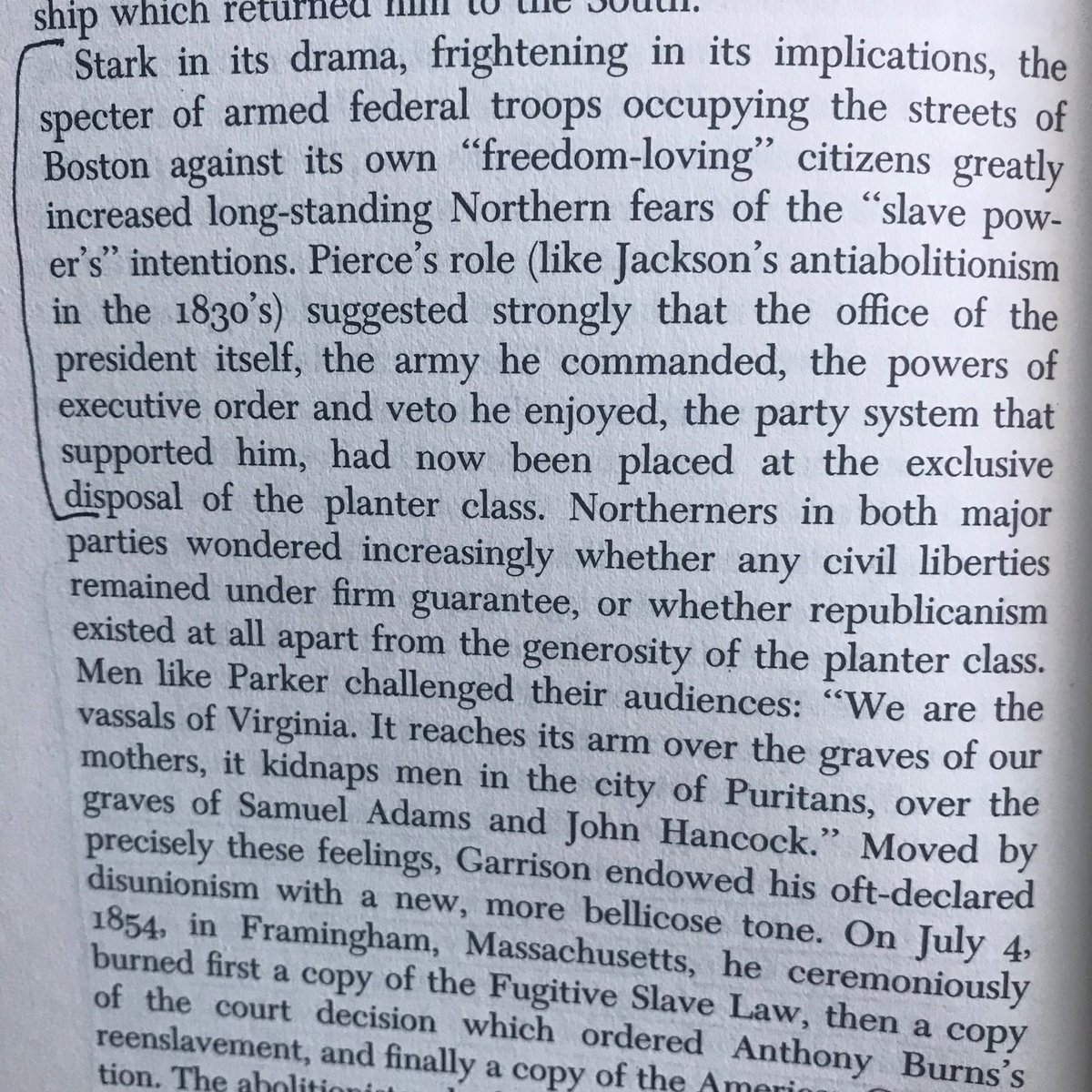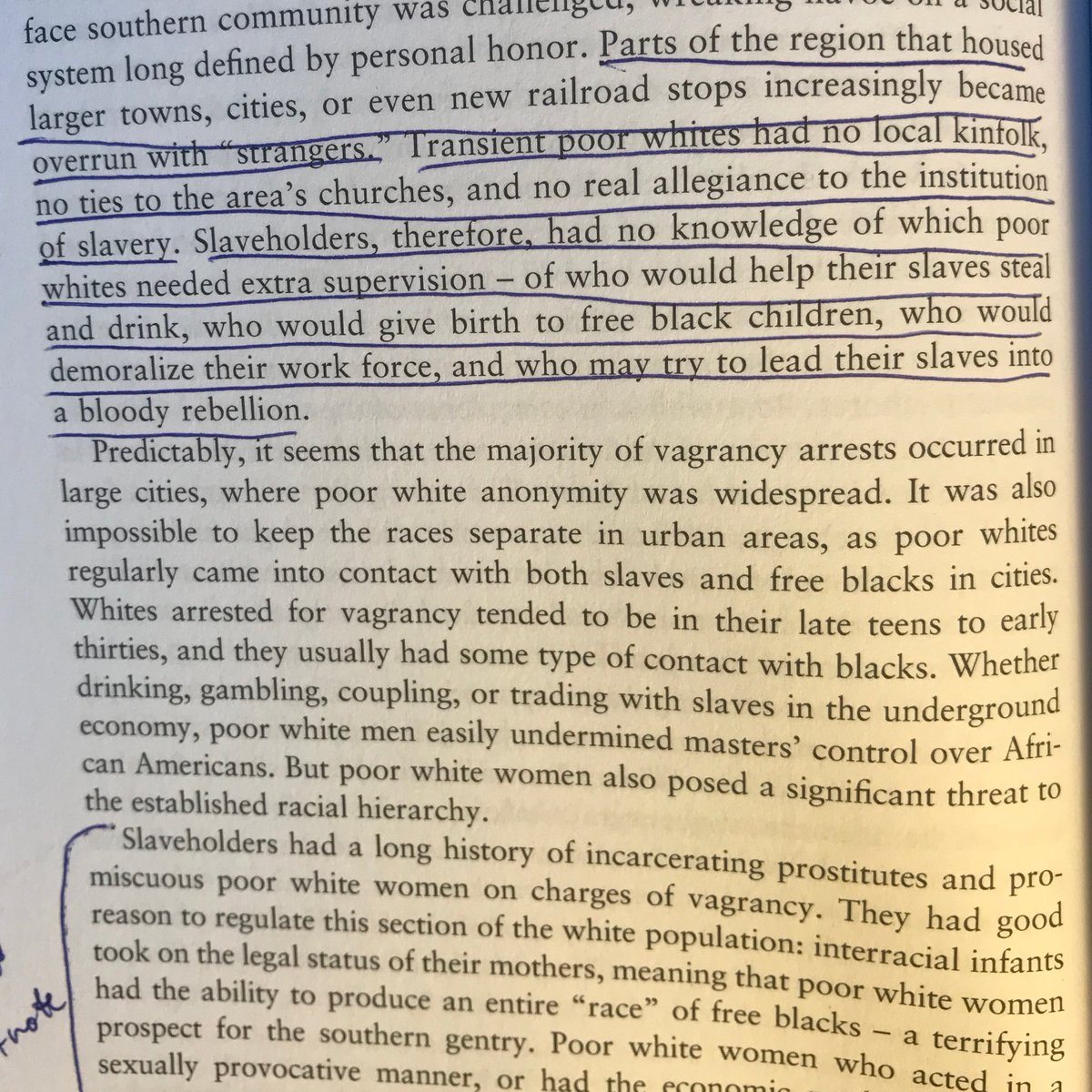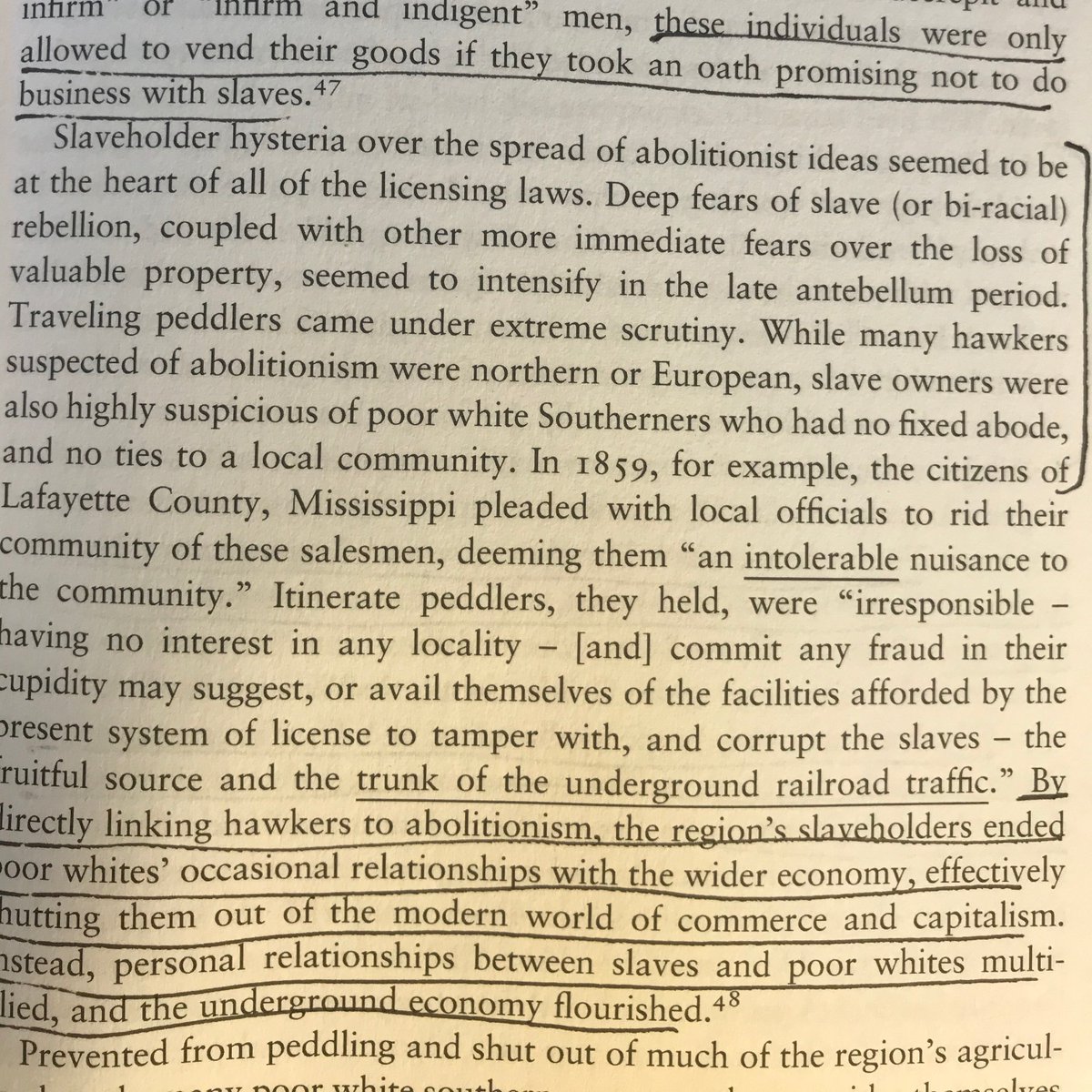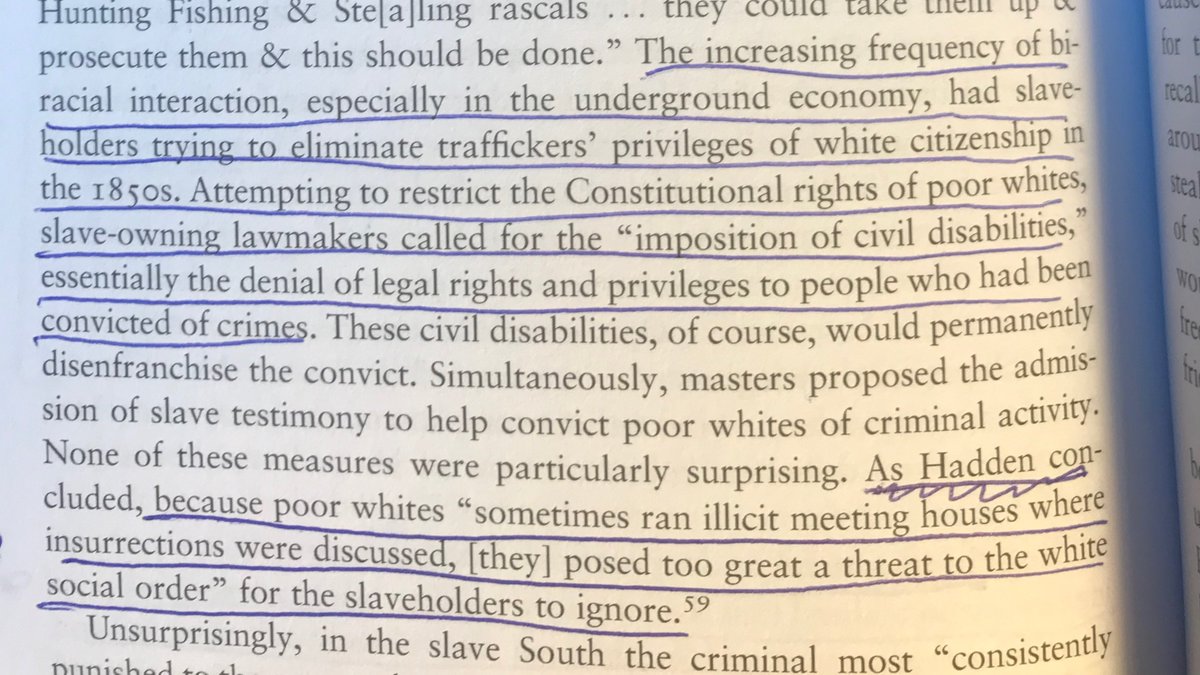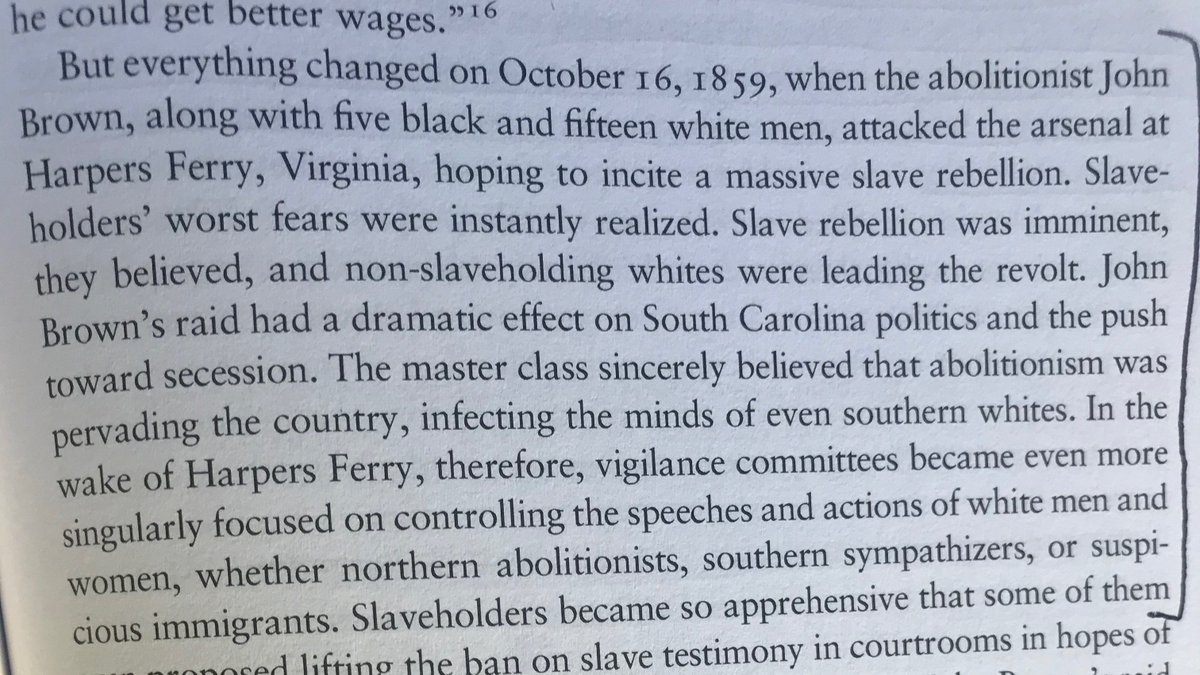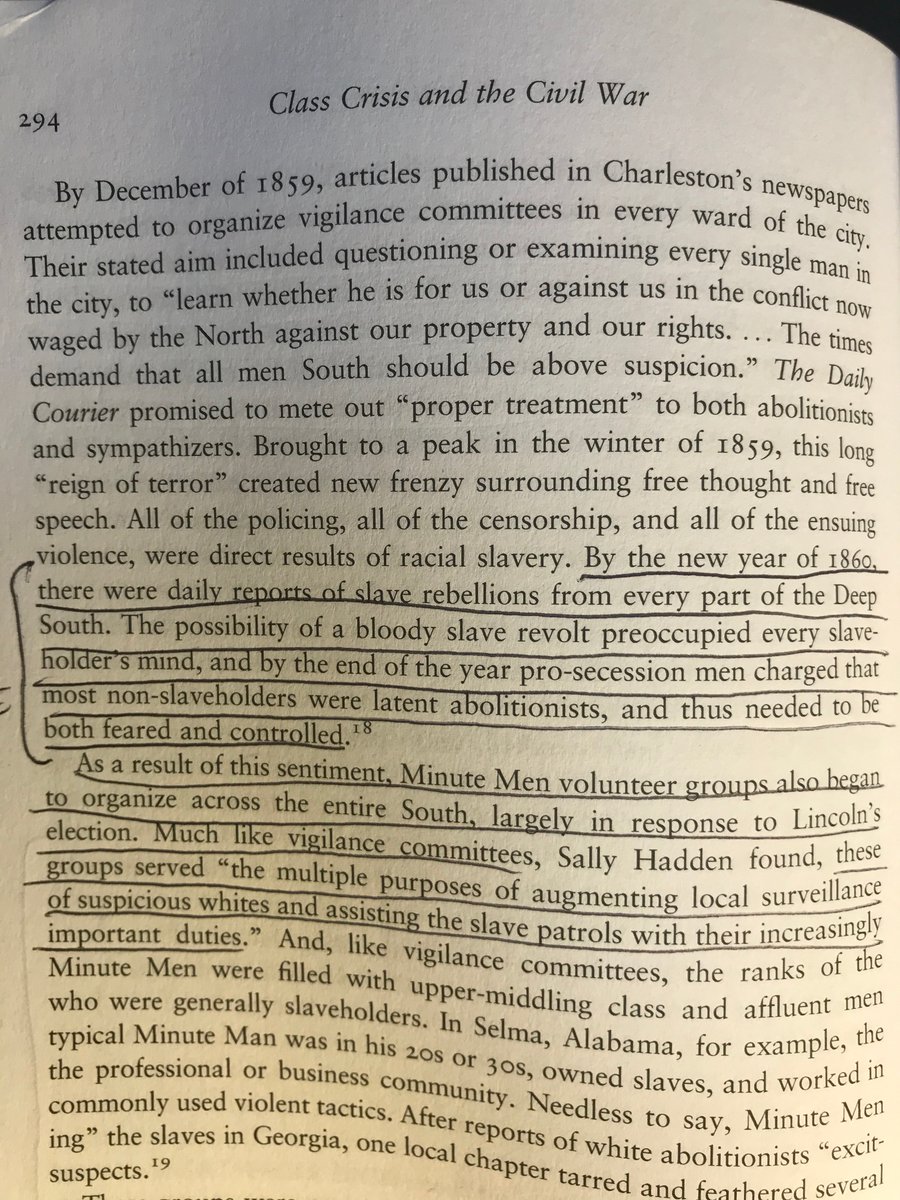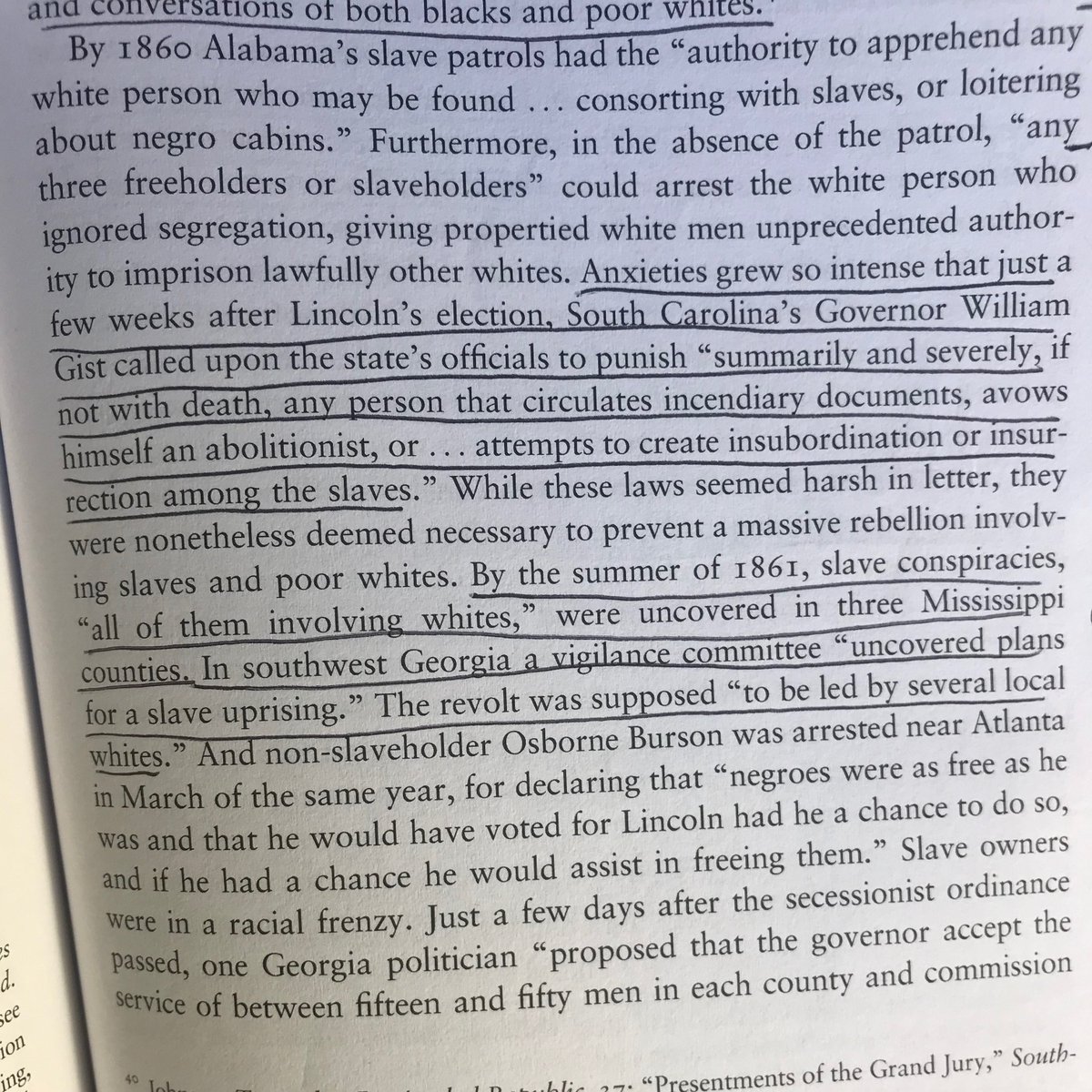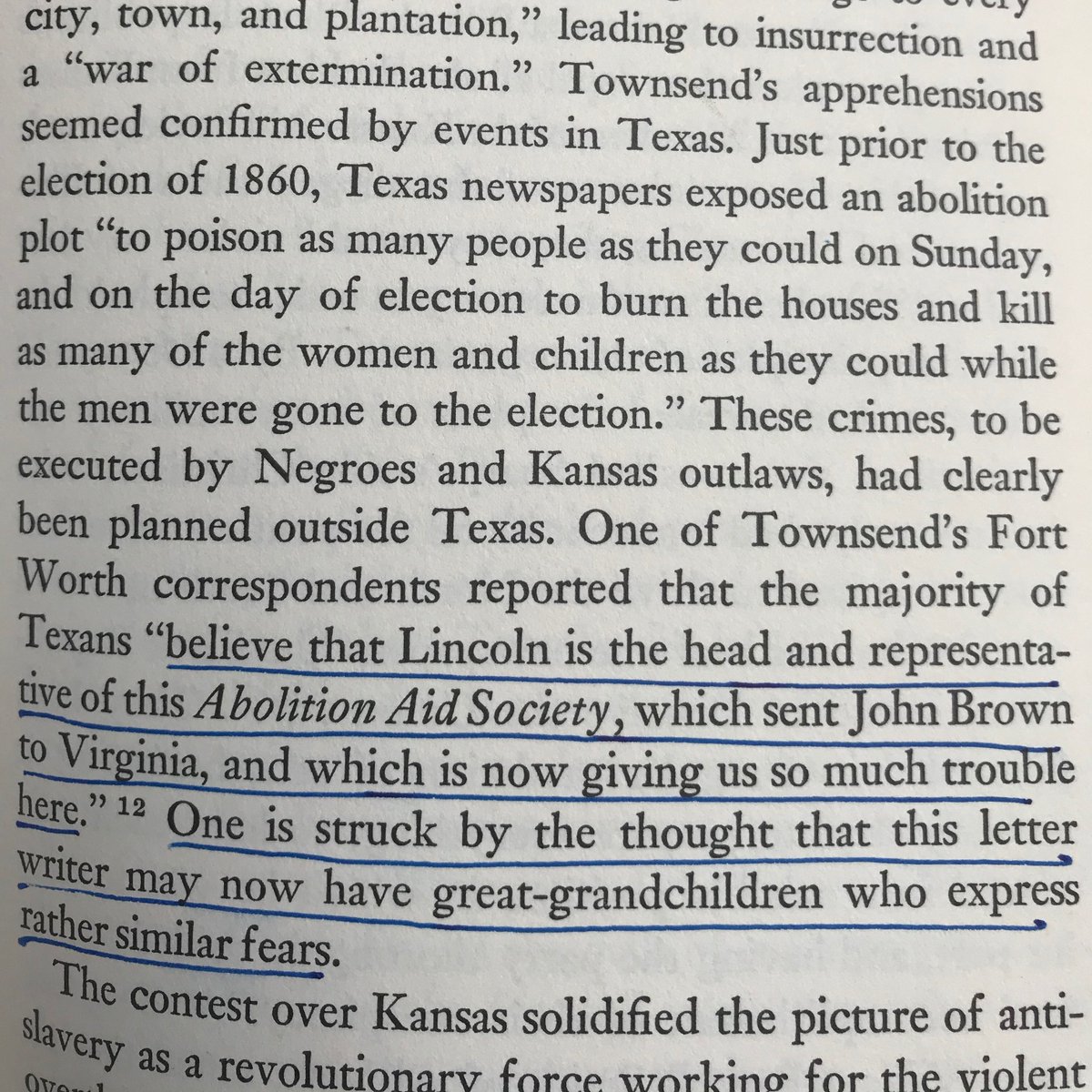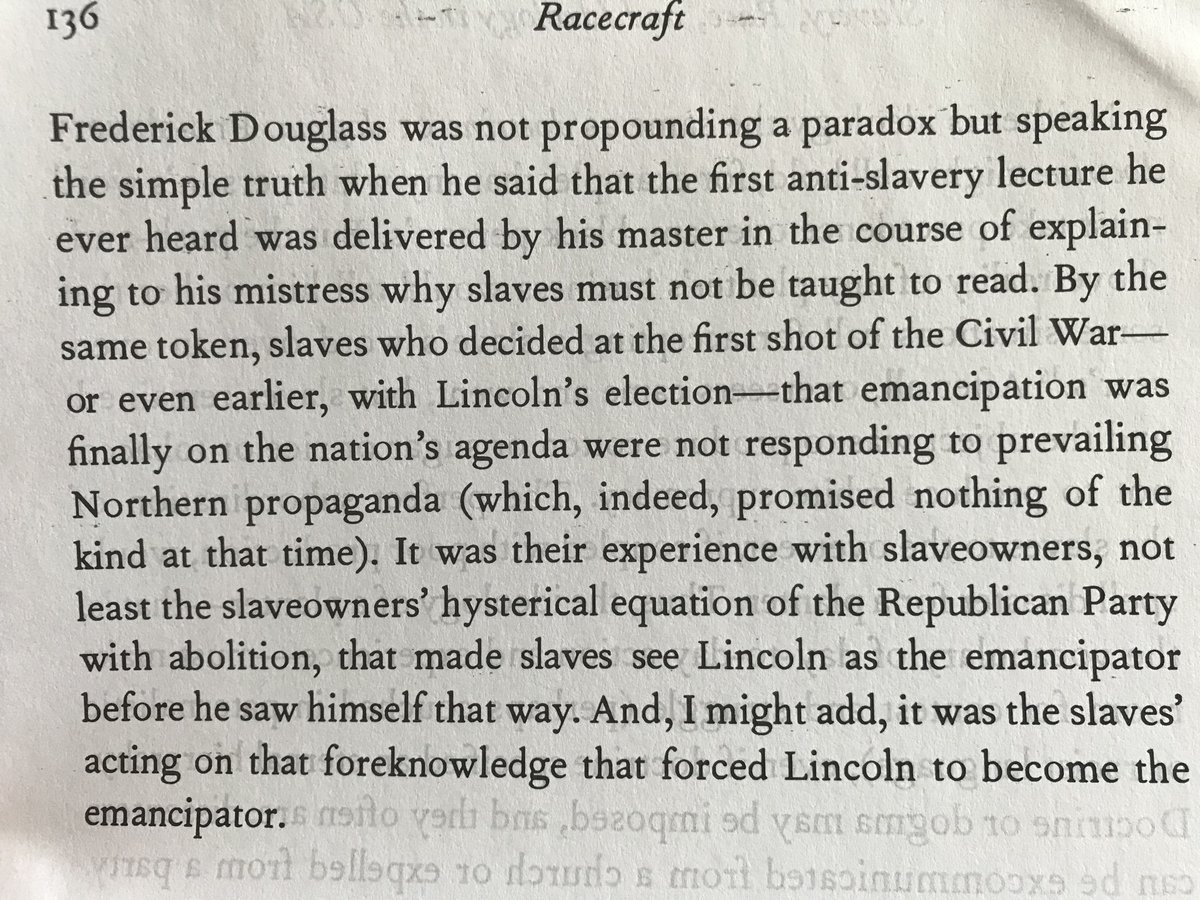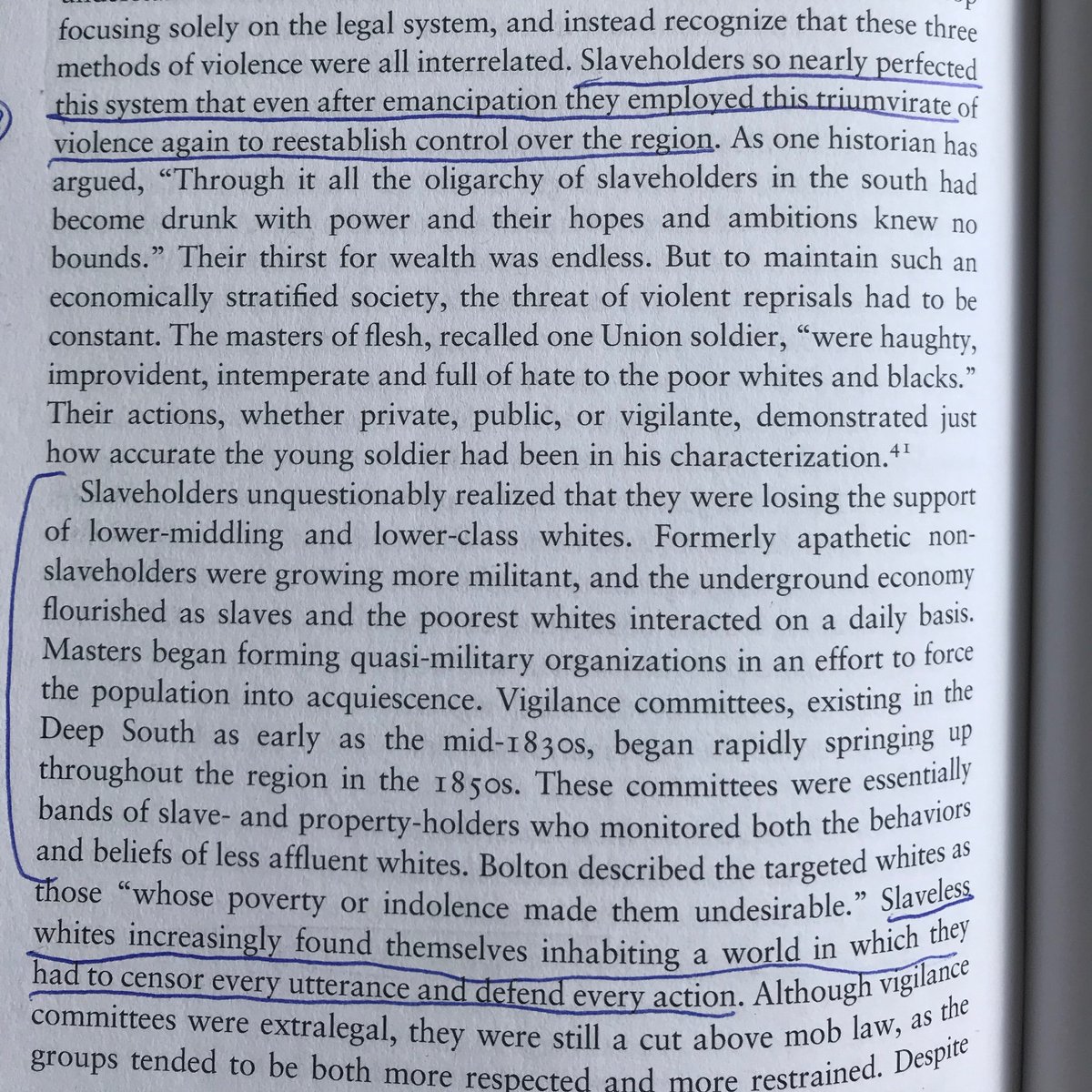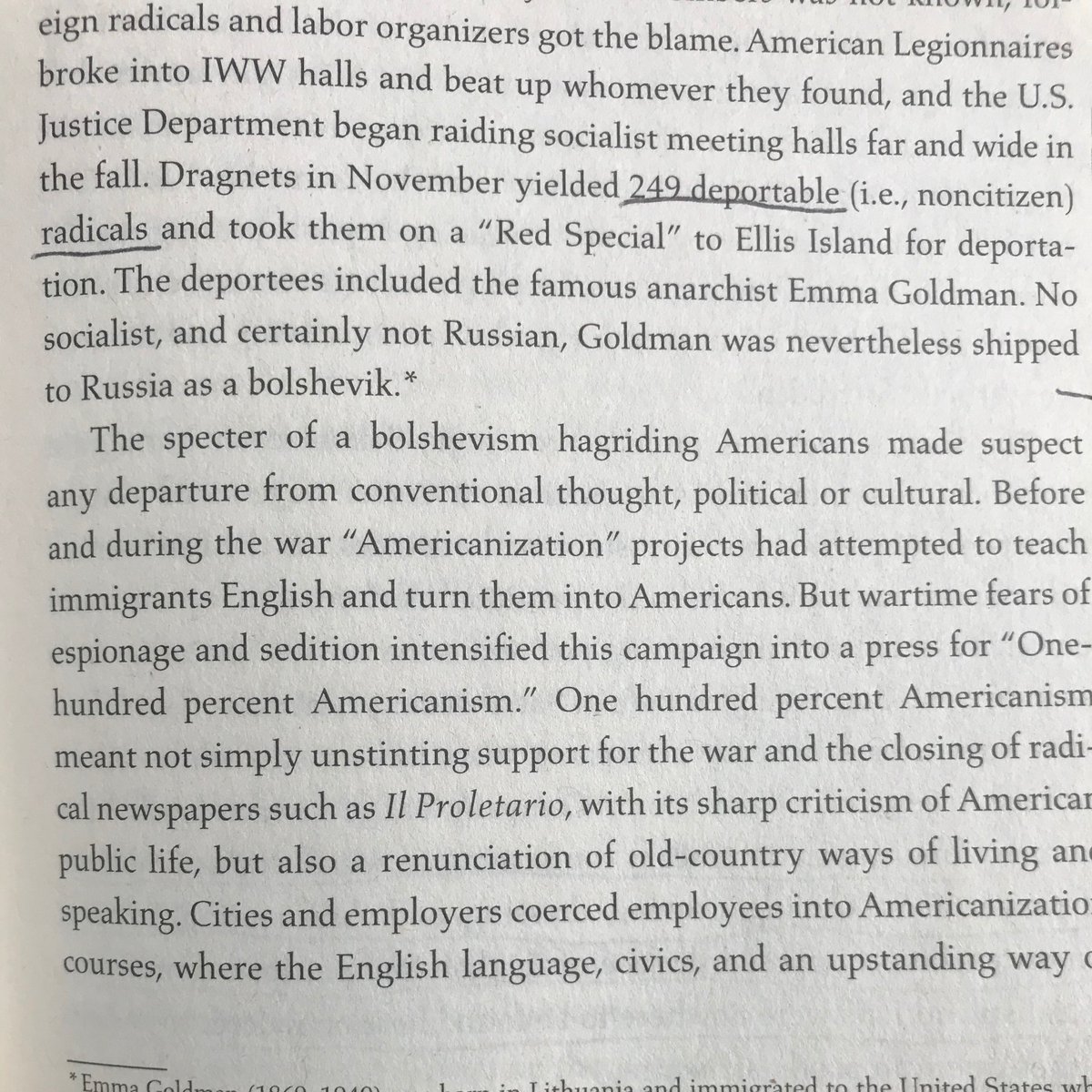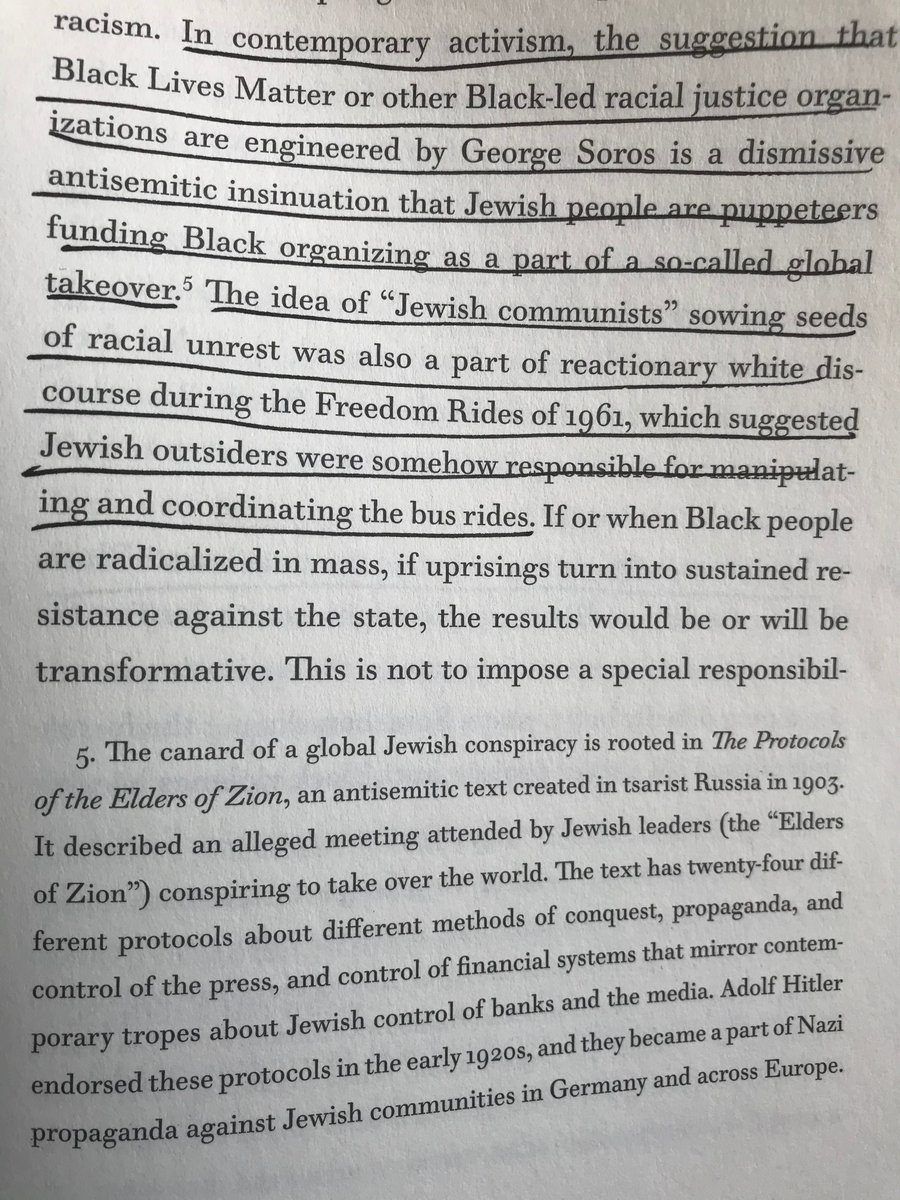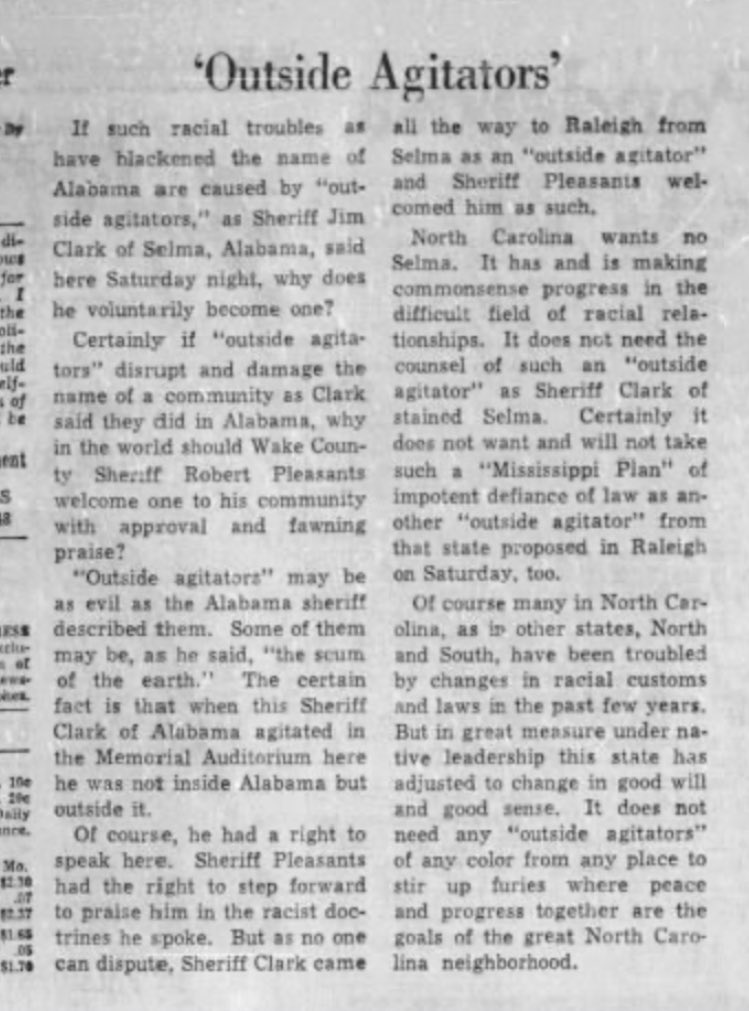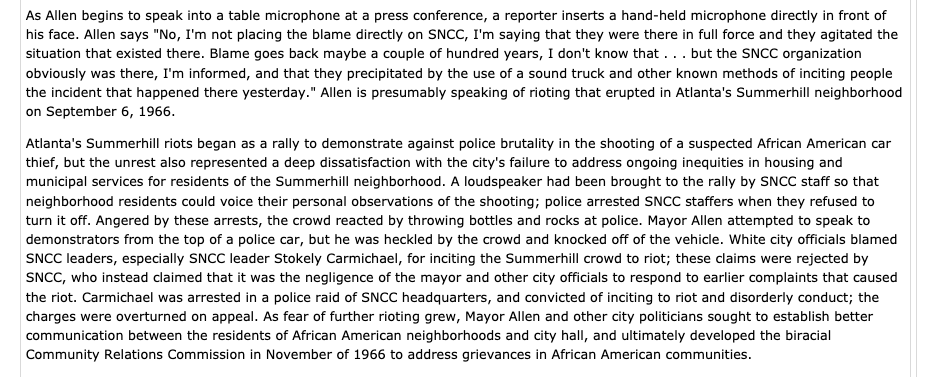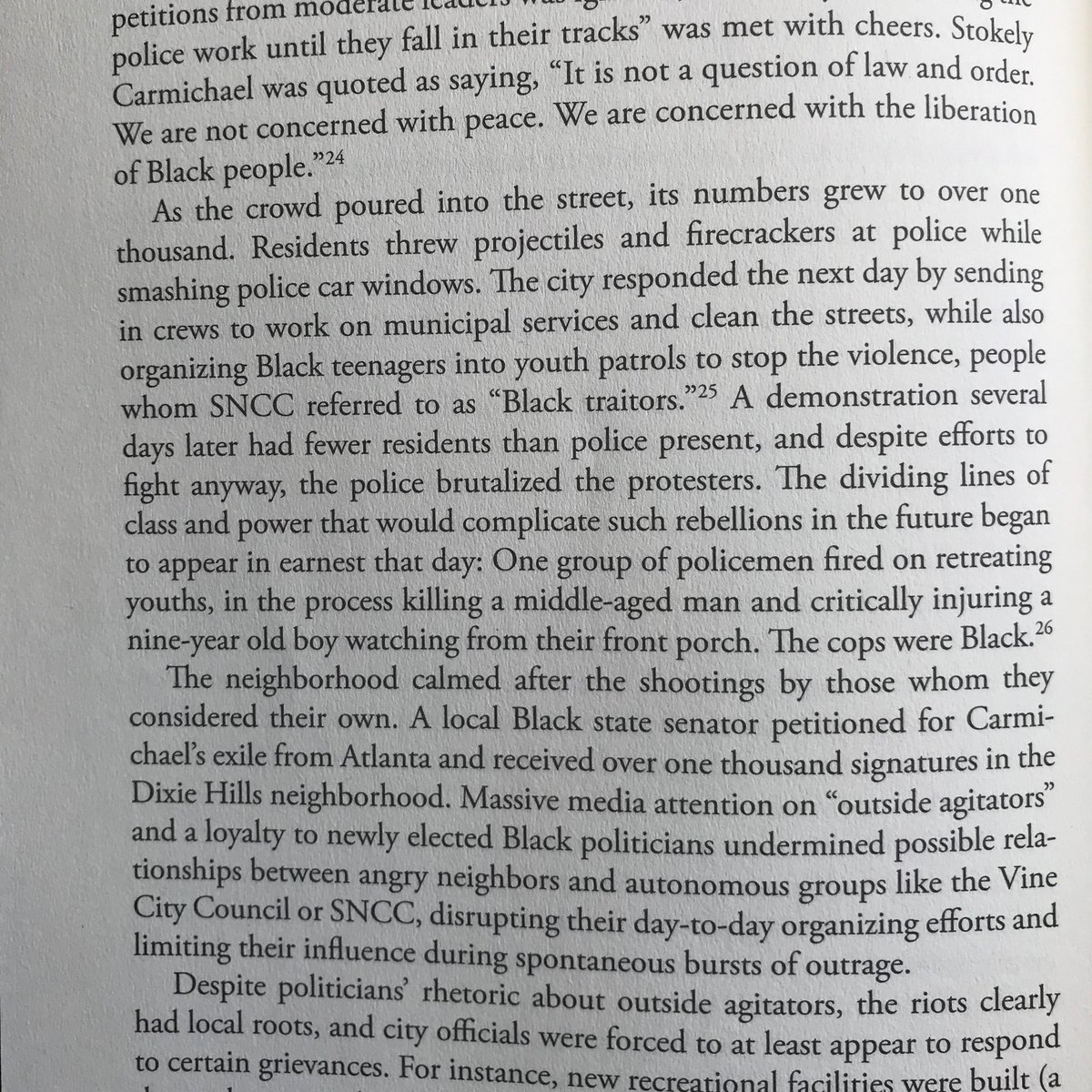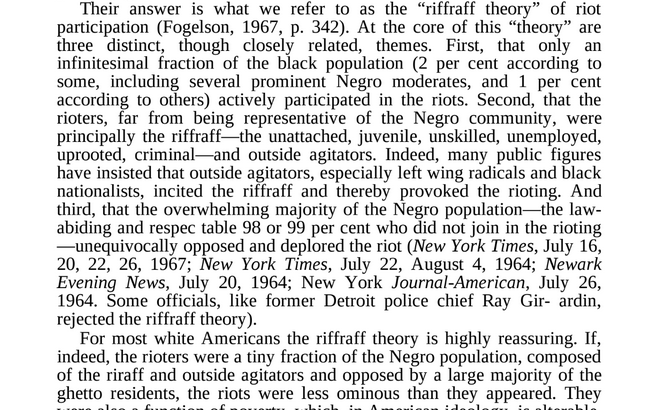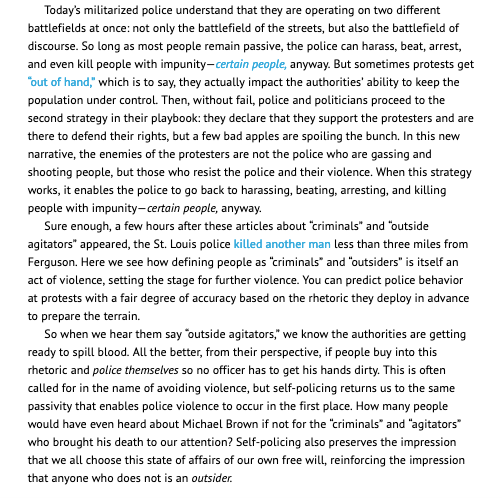THREAD:
As police and politicians insist that this wave of uprisings is the sole work of "outside agitators" to justify violent crackdowns, now& #39;s the time to revisit the long, racist history of the term and its role of fracturing solidarity in the name of counter-insurgency.
As police and politicians insist that this wave of uprisings is the sole work of "outside agitators" to justify violent crackdowns, now& #39;s the time to revisit the long, racist history of the term and its role of fracturing solidarity in the name of counter-insurgency.
Though the specific term "outside agitator" didn& #39;t become popular until the Civil Rights Movement, it& #39;s sentiment was felt in the Antebellum South. In the wake of slave uprisings, "outsider" accusations were often used by paranoid white slave owners to soothe their shaky nerves.
The “outside agitator” sentiment became especially popular in the U.S. after the Haitian Revolution, which early colonizers associated with “foreign troublemakers” because a successful revolution by African slaves was considered so “unthinkable” at the time.
Abolitionists were the most commonly accused “conspirators” lurking behind the Antebellum slave uprisings.
Again, because slave owners couldn& #39;t conceive that slaves could organize a rebellion on their own, they assumed that abolitionists must have been pulling all the strings.
Again, because slave owners couldn& #39;t conceive that slaves could organize a rebellion on their own, they assumed that abolitionists must have been pulling all the strings.
Though in reality many abolitionist organizations were pacifists and (unfortunately) condemned the slave uprisings for their overt violence, some more radical groups did successfully mobilize to prevent fugitive slaves from being returned to the South.
Even though abolitionists weren& #39;t orchestrating the Southern unrest, it& #39;s important to understand that many slave uprisings really did include small numbers of poor whites who saw more in common with their black neighbors than the slave owning class.
After the attack on Harpers Ferry, Southern elites – terrified of poor whites and black slaves banding together against them – began to raise the alarm about abolitionist "incendiaries" and other "suspicious whites" in their midst and soon formed patrols and laws to target them.
Though many slave owners saw Lincoln as a sinister figure who had secretly orchestrated the abolitionist movement and the Harper& #39;s Ferry uprising, it& #39;s important to remember that he actually entered the Civil War with no intentions of freeing the slaves.
With their repressive measures nominally aimed at white outsider “incendiaries,” slave holding elites were largely successful in disrupting future solidarity between rebellious poor whites and black slaves and laid the groundwork for the vigilante brutality of the Jim Crow era.
After the Civil War drew to a close, the success of demonizing "foreign agitators" was not lost on politicians tasked with suppressing the 1877 Great Railroad Strike and the labor movement of the early 20th century, both largely catalyzed by immigrants not yet considered "white."
In the early 1930& #39;s, the KKK and Jim Crow police forces used “outsider agitator” rhetoric to demonize communist and socialist organizers in the South who were willing to organize along side black agricultural workers for better conditions.
In the early 1960s, talk of "outside agitators" began to surface in response to anti-segregation protests organized by SNCC and MLK across the South. The term was largely used by Southern politicians to discredit the protests and set the stage for permitted violence against them.
After the 1966 Summerhill Riot in Atlanta – ignited when a cop shot an unarmed black man – the mayor and the media blamed the violence on “outside agitators” like Stokely Carmichael and other SNCC members who brought a soundsystem for angry residents to freely speak their minds.
The late 1960& #39;s saw the use of terms like "riff-raff" and "outside agitators" to de-legitimize and violently repress over 100 massive ghetto uprisings across the country, as well as justify the massacre of 13 unarmed students at Kent State.
Fast forward to 2014, as the Ferguson Uprising began to take form and solidarity demonstrations were spreading across the country, police chiefs and mayors began to speak of "white anarchist outside agitators" and "hardened criminals" infiltrating the otherwise peaceful protests.
These "agitator" accusations would typically come right before or after cops would violently attack crowds.
Afterward, some on social media – many of whom had not been present – would parrot the cop& #39;s talking points, accusing "white anarchists" of causing the repression.
Afterward, some on social media – many of whom had not been present – would parrot the cop& #39;s talking points, accusing "white anarchists" of causing the repression.

 Read on Twitter
Read on Twitter